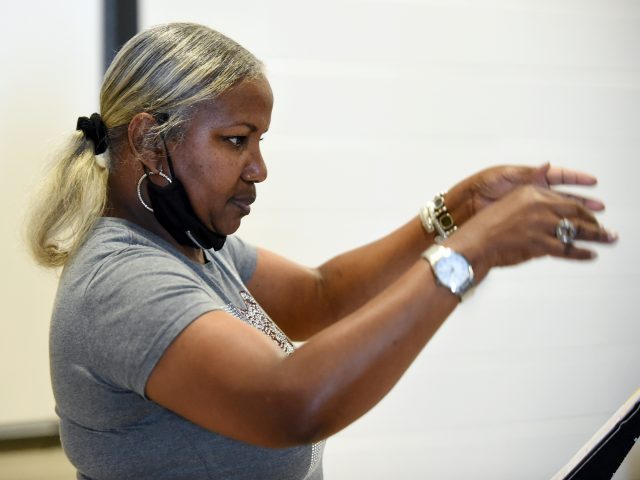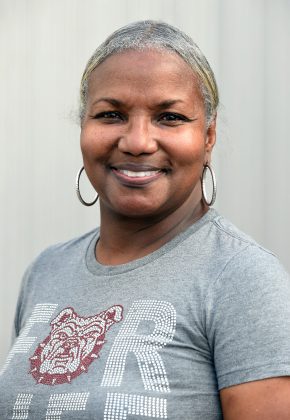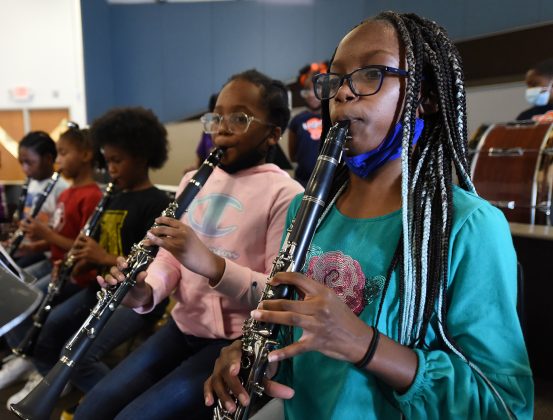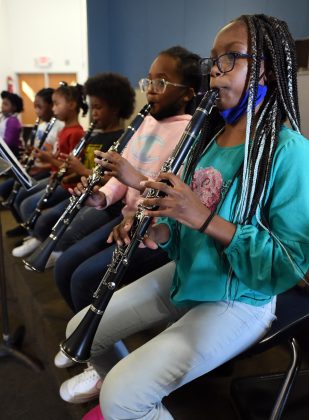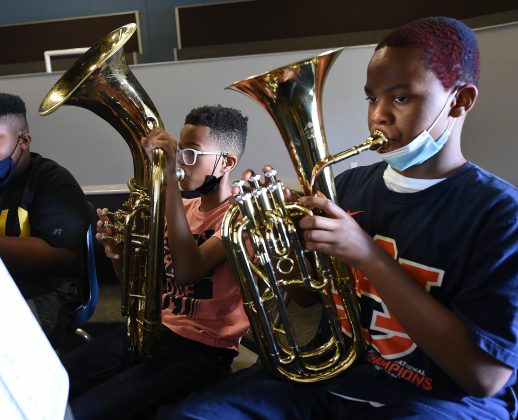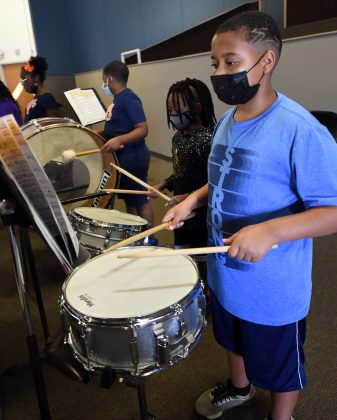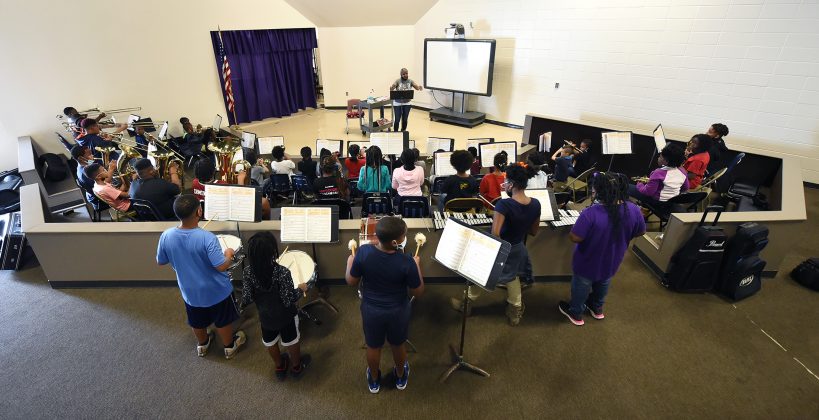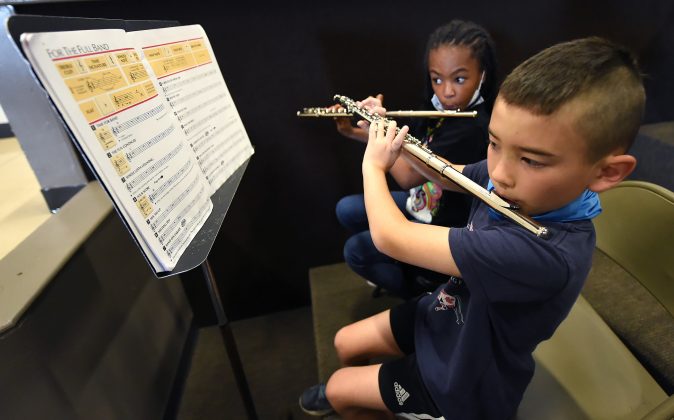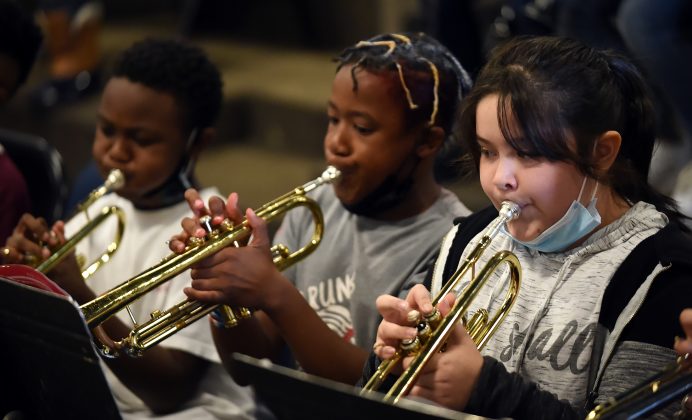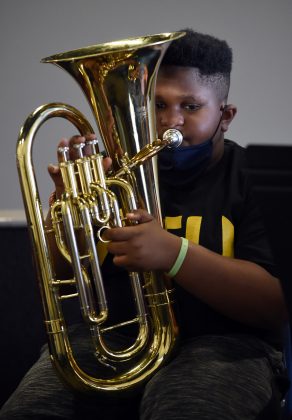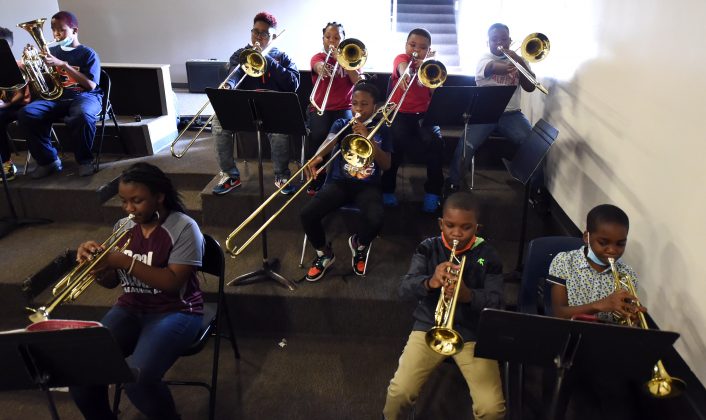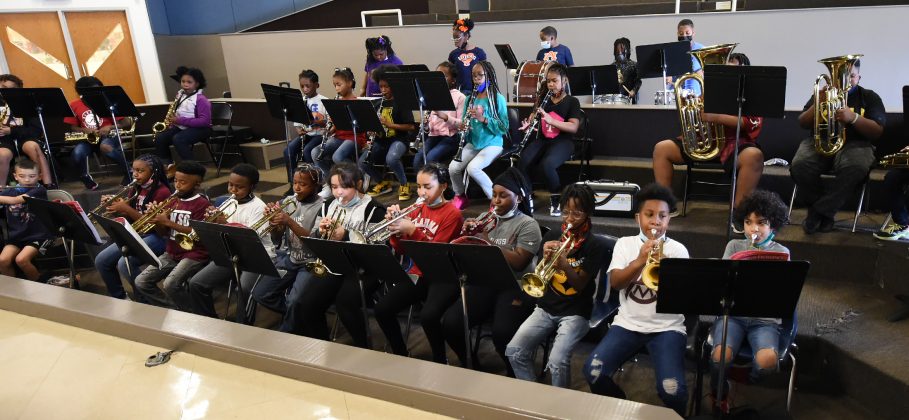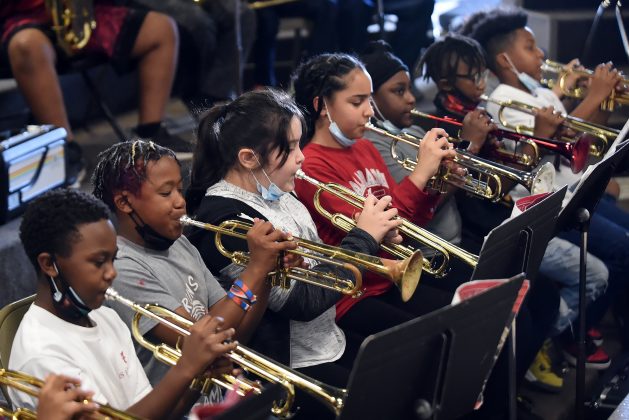By Ryan Michaels
The Birmingham Times
When most girls played with dolls, Tamara Travis, who directs the school band at Epic Elementary School in Birmingham’s Glen Iris neighborhood, “always played teacher.”
Travis knew she wanted to teach when she was still a student at Hudson Elementary School in the Collegeville neighborhood, first learning piano under Mabel C. Bohannon, who not only taught music at the elementary school but also taught Travis all the way through high school.
“All I wanted to do was practice the piano,” Travis said. “I loved being in the band at school.”
Travis’s mother, Marian Daniel, and grandmother, Bessie Revis Jones, played the organ at Collegeville’s Bethel Baptist Church, where Civil Rights legend Rev. Fred Shuttlesworth was the pastor.
Travis, who attended the church as a child, said Daniel was present during the 1963 bombing of the church, which left Jones with scars on her legs from the shattered glass. Shuttlesworth even stayed at Jones’s home after the bombing.
“He was not only their pastor,” Travis said. “He was their friend. He was the type of pastor that knew all of the people in his church. He visited them. When his church was bombed, he stayed at my grandparents’ house.”
Travis and her family keep up with the Shuttlesworth family to this day, seeing them at events like church anniversaries, as well as at a performance that Travis’s son, William, a music theatre performer, did in Ohio, where the Shuttlesworths now live.
“[Fred Shuttlesworth] was like a member of the family that just lived out of town, that we would see whenever he was in town, or if we went there,” she said.
Travis grew up with musicians and married one, too. Her husband, Ed Travis, played trombone at Alabama Agricultural and Mechanical University (AAMU), where the pair met. And the family’s love of music has been passed down to Travis’s two sons: Jared, 31, and William, 29, who played trumpet and trombone at Huffman Middle School. William also has had an ensemble role in a touring production of the popular musical “Hamilton” since 2017.
“Music has just been part of my life,” Travis said.
Music Stands
At Epic, Travis teaches music to 76 third, fourth, and fifth graders. When schools were closed due to the COVID-19 pandemic and Travis was conducting practice meetings online via Zoom music, she noticed that her students had less-than-ideal ways of propping up their sheet music.
“Looking at them at home, they were putting the books on the floor, on the dresser, in their bedrooms, on the pillow, anywhere. … I was like, ‘You need to sit up so you can have good posture,’ and ‘your band book needs to be up higher.’” She applied for and was recently awarded a $1,000 grant from the Alabama Power Foundation to purchase music stands for each of her band students.
Travis’s students are back in person learning music on a variety of instruments, including flutes, clarinets, saxophones, baritones, tubas, trumpets, trombones, and percussion instruments. They play together in Epic’s auditorium to allow for social distancing.
Working with the students isn’t really that hard once they get the fundamentals down. “It takes time,” she said. “[With brass and woodwind instruments, for instance], students learn how to use the correct embouchure, [meaning] their mouths are sitting properly on those instruments. … It takes time to start, but once they start and can play, make those sounds, it’s very simple.”
Forward-Looking
Travis has a “forward-looking” approach to teaching music, meaning she wants her students to be “advanced” when they leave elementary school. “I’ve had middle school students text me . . ., and they’re like, ‘We’re playing the music that high school students are playing,’ because they’re so advanced,” she said. “That makes me feel really, really good.”
Support from parents enables her students to succeed, she added. All of the kids in Travis’s band are playing their own instruments. “Investing in children at this young age means a lot,” she said. “When parents buy an instrument, … they are going to say, ‘Hey, you need to be practicing,’ and the [student] is going to get better.”
While band starts in third grade at Epic, Travis also teaches second graders to play the recorder, a simple woodwind instrument commonly taught to children in music classes, and read music. This allows her to spot traits that make for good band members. Some people are just “born with” those traits, she said, and some have to work toward musical ability.
“[Those born with talent] can hear the notes, they can finger the notes on the little recorders. They just get it,” Travis said. “It takes a lot of work for some people to get there, but I believe all children can do something musically. They may not be able to play a wind or brass instrument, but they can keep a beat on the drum.”
Early Teaching
After Travis began learning piano at age 5, she went on to play violin at Hudson before she moved on to the strings at Birmingham’s George Washington Carver High School, where she studied under Dathia Means. After graduating from Carver, Travis secured a music scholarship to AAMU through the school’s band director and Means’s husband, Arthur Means Jr. Ironically, Travis didn’t play in AAMU’s band.
“I went to college on a band scholarship, but when [Dr. Henry Bradford Jr.], chairperson of the music department and a piano player, found out that I was such a great piano player, I changed my major to piano.”
After earning a music education degree from AAMU, Travis moved back to Birmingham and worked as a music instructor for Birmingham City Schools (BCS), teaching at Donald Comer Elementary, Center Street Middle, Norwood Elementary, and Giddings S. Lewis Elementary, among others. When Travis was at Norwood Elementary, “I would have like 50 kids at [Norwood and North Birmingham Elementary], and we would make one big band—and they were awesome,” she said.
Toward the Future
Travis is passionate about music because it “pulls everything together universally.” She believes that learning the skills of playing music makes her students feel special.
“My students know that they’re focused, they’re disciplined, but they just love playing music,” she said. “They listen to different kinds of music, and being able to play an instrument is something they can do that someone else at the school cannot do, so it makes them feel special.”
While Travis has mostly taught elementary schoolers, she said it seems like high school bands are smaller than they were at other points in her career. She believes this may be because of more expectations being placed on students.
“[Students] have so many other things to do today, other than being in band. Some of them have to work while they’re in high school, so they aren’t able to participate in after-school activities,” she said.
Travis is hopeful that teachers will be able to increase the numbers for those bands in the future.
“I believe that if we just keep working on it at this level—this is the foundation, in elementary school—we can continue to make the numbers rise from elementary, to middle, to high school, to college,” she said.

